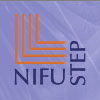Partner 3
|
NIFU STEP, Website: http://english.nifustep.no/ |

|
NIFU STEP is an institutional merger offering a blend of interests and capacities central to ResIST. As the name indicates, NIFU STEP resulted from the recent merger of two social science research institutes. On 1 May 2004, the histories of the Norwegian Institute for Studies of Research and Education (NIFU) and Studies in Technology, innovation, and Economic Policy (STEP) were brought together to promote synergies between the complementary expertise of the two parent environments.
The mission of NIFU STEP is to improve our understanding of innovation, research, and education in social systems. The institute combines theoretical and empirical methods from a variety of research areas and disciplines and encourages cooperation across disciplinary frontiers. Its ambition is to perform high quality theoretical and empirical research, by expanding empirical data and interpretations, and by promoting accessible and relevant analysis for our clients. One major objective is to expand the knowledge base for innovation, research and education policy development, and to develop an international policy learning arena for researchers and policy-makers alike.
Egil Kallerudis Senior Researcher at NIFU STEP since 1995. He is a philosopher by training and has before his time at NIFU STEP several years’ experience as senior policy advisor in Norwegian research policy agencies. His main expertise is within science policy studies, and has taken part in several Nordic and European research projects within that field. He has worked with a number of ResIST colleagues in the STAGE thematic network (FP5), working on the Norwegian case and country studies, and on the development of STAGE’s conceptual framework and methodology. In ResIST, he is co-leader of Work Package 1, and will inter alia write a section on global IPR policy. He will also contribute to Work Package 3.
Mark Knelljoined NIFU STEP in January 2005, as a Senior Researcher. In total, he has more than fifteen years of experience in teaching and research in the fields of technology and economic policy research. Prior to joining NIFU STEP he worked as a Senior Economic analyst during research on technology transfer and spillovers between firms (NRC KUNI project) at Menon, a researcher on the biopharmaceutical innovation system (OECD NESTI case study project), national innovation systems in a globalising economy (ESF/Eurocores project) and on innovation and growth in LDCs (Norwegian Research Council project) at the TIK centre in the University of Oslo and as an economic affairs officer (P-4) in the United Nations Economic Commission for Europe (UNECE), a economic affairs officer (P-3) in the United Nations Conference on Trade and Development (UNCTAD). He was also a consultant to the International Labour Organization (ILO) and the United Nations Industrial Development Organization (UNIDO) and provided policy advice to the European Commission.
In the 1990s, he taught courses on technology and economic policy at several different universities, including the University of Michigan, Dearborn, Middlebury College, the Cooper Union and De Montfort University, Leicester UK. While at De Montfort University he participated in two Phare Ace projects on multinational activities in the accession countries and obtained a Jean Monet Chair in European Economy. He was also a research Associate at the Vienna Institute for International Economic Studies where he helped develop and later participated in the EU Fifth Framework project Integration of Macroeconomic and S&T Policies for Growth, Employment and Technology (MACROTEC) as a work group coordinator and contributor.
With Susan Cozzens, Mark provides leadership in all activities under Work Package 4, and will in particular work on the development of a typology of emerging technologies and national conditions, and gather background documentation and identify data sources for analysis in established EU member states.